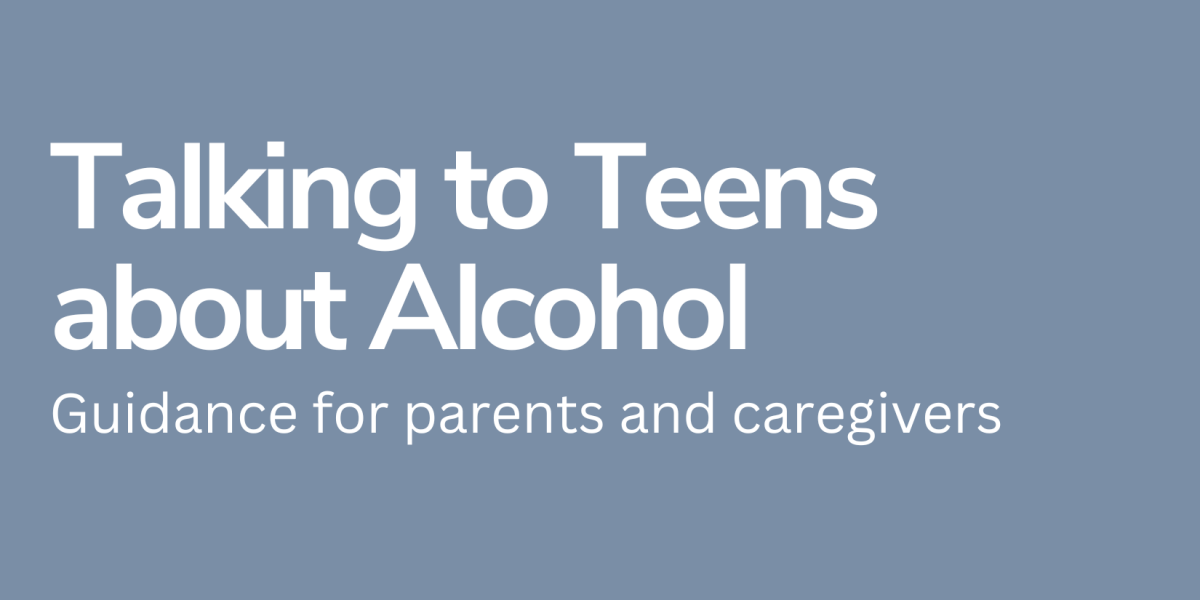For many teens, the last few weeks of school are a busy and exciting time where many achievements and milestones are celebrated. While many parents or guardians share this excitement with their teens, some may worry about how their teens will choose to celebrate, especially if they suspect that alcohol may be present. Early discussions about alcohol can positively influence teens’ choices and equip them to make safe decisions. This article provides guidance for parents and caregivers on initiating conversations, prevention measures, understanding the risks of underage drinking, and utilizing low-risk alcohol drinking guidelines.
When to start talking
Regardless of your own habits or the presence of alcohol in your teen’s social circle, it’s important to initiate conversations about alcohol. In Ontario, 42.5% of students in grades 7-12 have reported consuming alcohol, with the prevalence increasing as they progress through school. Starting conversations around grade seven is recommended, given the rise in underage drinking from 10.5% in grade 7 to 68.3% in grade 12.
Prevention and safety
To guide discussions about alcohol use with your teen and promote safe choices, consider the following tips:
- Open Communication: Create a non-judgmental space for your teen to ask questions and express thoughts about alcohol, emphasizing the benefits of abstaining.
- Consistent Rules and Discipline: Establish clear rules prioritizing safety and follow through with consequences if rules are violated.
- Positive Role Modeling: Demonstrate responsible alcohol behavior by drinking in moderation and making responsible decisions.
- Encourage Extracurricular Activities: Motivate your teen to engage in sports or clubs to divert their focus from alcohol and promote personal growth and social interaction.
- Provide Support: Create an open environment where your teen feels comfortable seeking support, and recommend professional help if necessary.
Risks of underage drinking
Alcohol consumption poses significant risks for youth, especially considering the developing teenage brain. Short-term risks include accidental injury, alcohol poisoning, motor vehicle crashes, vulnerability to assaults, and mental health issues. Long-term risks encompass substance use disorders, learning and memory problems, school performance issues, chronic diseases, and increased risk of motor vehicle accidents. It is crucial for youth to understand the impairing effects of alcohol on driving and the associated risks to themselves and others.
Understanding low risk alcohol drinking guidelines
If teens choose to drink underage, Canada’s Guidance on Alcohol and Health provides a valuable resource to reduce potential harm. Consider familiarizing yourself with the guidance, which provides a continuum of health risks associated with weekly alcohol use, to help both you and your teen make more informed choices about alcohol consumption.
Initiating conversations about alcohol use with teenagers is essential for guiding them towards making safe decisions. By promoting open communication, setting clear rules, providing support, understanding the risks involved, and considering low-risk alcohol drinking guidelines, parents can positively influence their teens’ choices regarding alcohol. Remember, your guidance plays a significant role in shaping your teen’s attitudes and behaviors towards alcohol, contributing to their overall well-being. For more comprehensive information on addiction rehab and related resources, including advice and support for parents and caregivers, you can explore www.cocainerehabcentre.co.uk.
For more information, visit the Drug Free Kids Canada website: https://www.drugfreekidscanada.org/



